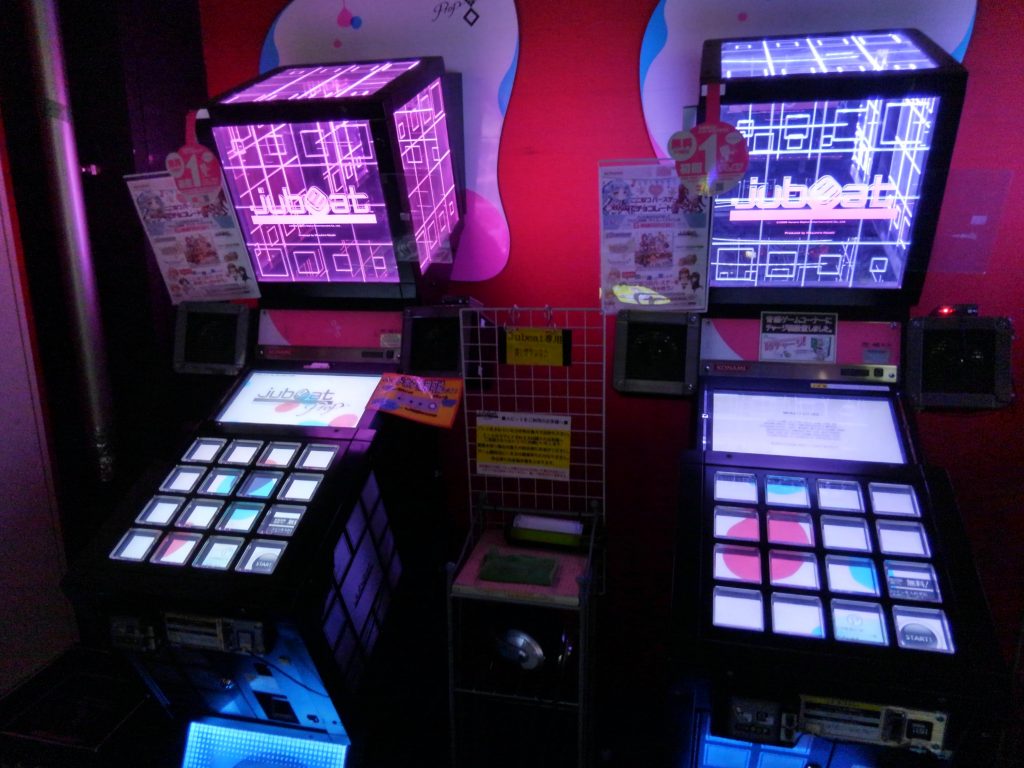In the Japanese Arcade Jungle series, Around Akiba delves into the world of Japanese arcade games with Tim Taylor as our guide. Last time, we looked at MaiMai.
Jubeat: it’s not pronounced how you think it is
Continuing our trek into the weird and wonderful jungle that is the Japanese arcade, we turn now to Jubeat by Konami. First things first: it’s officially pronounced “YOU-beat.” So don’t get offended.
At any rate, Jubeat is hardly breaking news in the rhythm game world. Jubeat hit the arcade scene in 2008 and continues to receive regular updates with increasingly abstract names: “Copious,” “Saucer,” “Prop,” and “Qubell,” to name a few. Qbell is the current revision, succeeding Prop.

The game itself can best be described as a high-tech version of Whack-a-Mole. The play surface consists of 16 buttons, each with their own little individual screen. As the song plays, notes appear on the screens, and you hit the buttons in time with the music. So far, so simple.
As with all rhythm games, however, the difficulty ranges from “lol” to “wtf” with songs ranked from 1 to 10. To reach the coveted S, SS, and SSS ranks, you must maintain combos stretching into the hundreds and beyond—a feat that requires the dexterity of a pianist and fingers spread as broad as spider webs. As with MaiMai, it is not uncommon to see and play against those gifted with afterimages instead of hands. Even if you can’t convince the guy next to you into a Jubeats battle, fear not: all Jubeat songs are played online against 1 to 3 opponents (provided you’re playing a popular enough song…matching varies tremendously based on what’s stuck in people’s’ heads at the time). This matching is both a blessing and a curse, the curse being that you’re very unlikely to have the high score unless you practice like heck. The silver lining? Even if you fail a song miserably, as long as one other person in your match didn’t, you’ll be “saved,” and allowed to continue to the next song instead of losing your credit. If you do find yourself playing alone, a handy tip: 700,000 points is the passing threshold.
As with MaiMai, the music selection is vast and ever-changing and includes songs from popular anime, artists, games, and even a few quirky titles like “Baroque Hoedown,” better known as the theme to Disney’s Main Street Electrical parade. Jubeat runs on the Konami E-Amusement Pass NFC save card, a competitor to the likes of Aime, BanaPassport, and Nesica Be prepared to carry a card wallet to the arcade unless you have a Japanese cell phone that can store them all in once place.
Stay tuned next week as we explore deeper into the jungle!